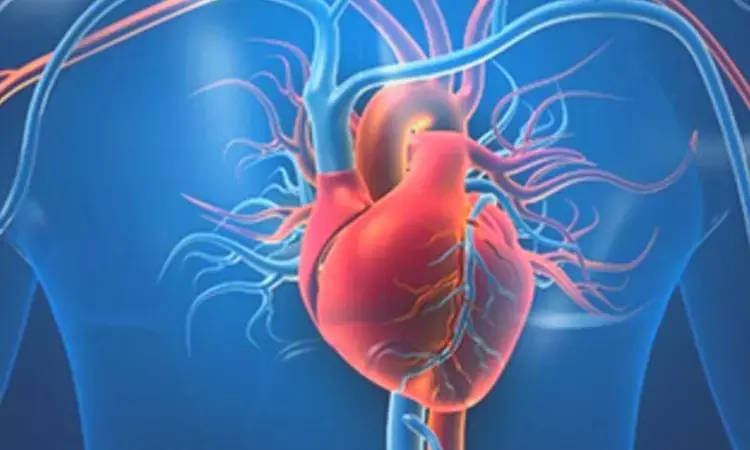- Home
- Medical news & Guidelines
- Anesthesiology
- Cardiology and CTVS
- Critical Care
- Dentistry
- Dermatology
- Diabetes and Endocrinology
- ENT
- Gastroenterology
- Medicine
- Nephrology
- Neurology
- Obstretics-Gynaecology
- Oncology
- Ophthalmology
- Orthopaedics
- Pediatrics-Neonatology
- Psychiatry
- Pulmonology
- Radiology
- Surgery
- Urology
- Laboratory Medicine
- Diet
- Nursing
- Paramedical
- Physiotherapy
- Health news
- Fact Check
- Bone Health Fact Check
- Brain Health Fact Check
- Cancer Related Fact Check
- Child Care Fact Check
- Dental and oral health fact check
- Diabetes and metabolic health fact check
- Diet and Nutrition Fact Check
- Eye and ENT Care Fact Check
- Fitness fact check
- Gut health fact check
- Heart health fact check
- Kidney health fact check
- Medical education fact check
- Men's health fact check
- Respiratory fact check
- Skin and hair care fact check
- Vaccine and Immunization fact check
- Women's health fact check
- AYUSH
- State News
- Andaman and Nicobar Islands
- Andhra Pradesh
- Arunachal Pradesh
- Assam
- Bihar
- Chandigarh
- Chattisgarh
- Dadra and Nagar Haveli
- Daman and Diu
- Delhi
- Goa
- Gujarat
- Haryana
- Himachal Pradesh
- Jammu & Kashmir
- Jharkhand
- Karnataka
- Kerala
- Ladakh
- Lakshadweep
- Madhya Pradesh
- Maharashtra
- Manipur
- Meghalaya
- Mizoram
- Nagaland
- Odisha
- Puducherry
- Punjab
- Rajasthan
- Sikkim
- Tamil Nadu
- Telangana
- Tripura
- Uttar Pradesh
- Uttrakhand
- West Bengal
- Medical Education
- Industry
Use of anabolic steroids linked to long-lasting risk of HF, depression and worse QoL

Denmark: Results from two studies suggested that anabolic steroids can cause serious side effects during use, such as depression and heart failure, and continue to be harmful years after stopping.
Results from the two studies were presented at the 25th European Congress of Endocrinology in Istanbul. The studies were carried out by researchers from the Copenhagen University Hospital Rigshospitalet, who investigated the impact of anabolic steroids on former users.
Anabolic steroids – synthetic hormones that mimic the naturally-occurring sex hormone testosterone – increase muscle mass and boost athletic performance. These performance-enhancing drugs have harmful side effects, for instance, in men these include breast growth, hair loss, lower testosterone levels, erectile dysfunction, and an increased risk of heart disease, stroke, and liver or kidney failure. However, little is known about the effects years after stopping their use.
In one study, the researchers examined 64 healthy men, between the ages of 18 and 50, who did recreational strength training in Denmark. Of these men, 28 were using anabolic steroids, 22 were former steroid users, and 14 had never used these steroids. The researchers assessed how much blood flowed to their heart muscle when resting and exercising, using a Positron Emission Tomography-Computed Tomography (PET-CT) scan with the radioactive tracer Rubidium-82. They found both former and current users had a poor blood flow to the heart.
The findings indicate that former steroid users are more likely to develop heart disease when compared to those who have never used them. “Previous studies have shown that the heart function almost normalises after anabolic steroids are discontinued, but our study suggests that former anabolic steroid users are at an increased risk of heart disease years after stopping as cardiac microcirculation-the blood flow through the smallest vessels in the circulatory system-seems persistently impaired,” said lead author Dr Yeliz Bulut. “The previous use of anabolic steroids could be a new risk factor for developing cardiovascular disease.”
In another study, Dr Bulut and colleagues collected questionnaires and blood samples to measure testosterone levels from three groups of men, aged 18-50 years: 89 current anabolic steroid users, 61 former steroid users, and 30 men who had never used steroids before. They found that former users of anabolic steroids report a worse quality of life on their physical and mental health, such as fatigue, social functioning and emotional well-being, despite stopping years earlier. Additionally, the same group had lower testosterone levels compared to those who had never used steroids.
Previous studies have shown that men experience withdrawal symptoms, such as depression and low motivation, and have lower levels of testosterone, immediately after they stop using steroids. “Our study adds to the growing body of literature that an impaired quality of life in previous anabolic steroid users seems to persist years following cessation and could be caused by both withdrawal and/or hypogonadal symptoms due to a sudden drop in testosterone levels in the blood,” said Dr Bulut. “Sadly, a reported worse quality of life could be a reason for former users to start reusing these steroids again.”
Both studies included a small number of anabolic steroid users, former users and non-users. Dr Bulut and her team now plan to recruit more men to the studies to assess both of these links with former steroid abuse on a larger scale. “Our initial findings show that previous anabolic steroid users are likely to develop heart disease and have a decreased quality of life but we need to confirm these results with larger studies and investigate how the risk changes in relation to the years of usage and/ or cessation,” said Dr Bulut. “Steroid side effects among former users seem to persist for a much longer period than we have known until now. We hope our results on these long-term health risks will prevent men from using anabolic androgenic-steroids.”
Dr Kamal Kant Kohli-MBBS, DTCD- a chest specialist with more than 30 years of practice and a flair for writing clinical articles, Dr Kamal Kant Kohli joined Medical Dialogues as a Chief Editor of Medical News. Besides writing articles, as an editor, he proofreads and verifies all the medical content published on Medical Dialogues including those coming from journals, studies,medical conferences,guidelines etc. Email: drkohli@medicaldialogues.in. Contact no. 011-43720751


